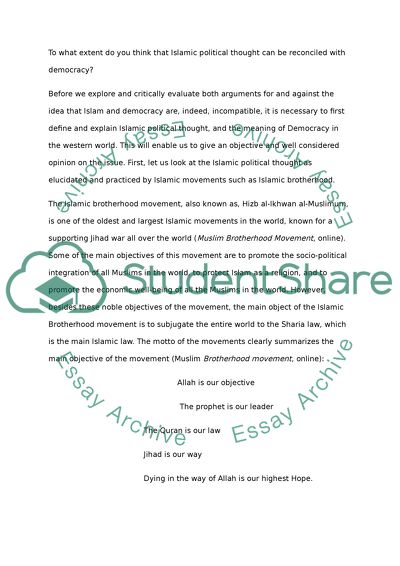Cite this document
(“To what extent do you think that Islamic political thought can be Essay”, n.d.)
Retrieved from https://studentshare.org/religion-and-theology/1404506-to-what-extent-do-you-think-that-islamic-political
Retrieved from https://studentshare.org/religion-and-theology/1404506-to-what-extent-do-you-think-that-islamic-political
(To What Extent Do You Think That Islamic Political Thought Can Be Essay)
https://studentshare.org/religion-and-theology/1404506-to-what-extent-do-you-think-that-islamic-political.
https://studentshare.org/religion-and-theology/1404506-to-what-extent-do-you-think-that-islamic-political.
“To What Extent Do You Think That Islamic Political Thought Can Be Essay”, n.d. https://studentshare.org/religion-and-theology/1404506-to-what-extent-do-you-think-that-islamic-political.


